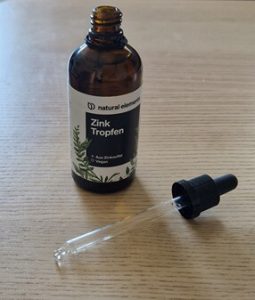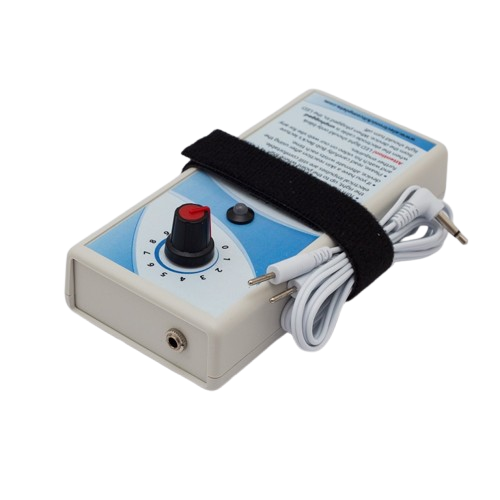Zinc: The Essential Mineral for Immune Strength, Healing, and Hormonal Balance
Zinc is a trace mineral that the body requires in small but vital amounts. Though often overlooked in mainstream nutrition discussions, zinc plays a foundational role in a wide range of biological functions. It is stated that zinc is involved in over 300 enzyme reactions and is critical for immunity, wound healing, reproductive health, skin integrity, and mood regulation.
Despite its importance, zinc deficiency is more common than many realize, especially in populations relying heavily on plant-based diets or in individuals under chronic stress. Understanding where zinc is found, how it functions, and which forms are best absorbed can make a meaningful difference in daily health.
Where Is Zinc Found in Food?
Zinc is naturally present in a variety of animal and plant-based foods, though the body absorbs it more efficiently from animal sources. Foods richest in zinc include:
| Food | Serving Size | Zinc (mg) | % Daily Value (DV) |
| Oysters (cooked) | 6 medium | ~32 mg | 290% |
| Beef (ground, cooked) | 100g (3.5 oz) | ~5 mg | 45% |
| Lamb (cooked) | 100g | ~4.8 mg | 44% |
| Chicken thigh (cooked) | 100g | ~2.4 mg | 22% |
| Turkey (cooked) | 100g | ~2.5 mg | 23% |
| Egg yolks | 2 large | ~1.3 mg | 12% |
| Beef liver (cooked) | 100g | ~4 mg | 36% |
Plant-Based Sources:
| Food | Serving Size | Zinc (mg) | % Daily Value (DV) |
| Pumpkin seeds (roasted) | 30g (about ¼ cup) | ~2.2 mg | 20% |
| Hemp seeds (hulled) | 3 tbsp | ~3 mg | 27% |
| Chickpeas (cooked) | 1 cup | ~2.5 mg | 23% |
| Lentils (cooked) | 1 cup | ~2.1 mg | 19% |
| Cashews (dry roasted) | 28g (about 18 nuts) | ~1.6 mg | 15% |
| Quinoa (cooked) | 1 cup | ~1.9 mg | 17% |
| Oats (cooked) | 1 cup | ~2.3 mg | 21% |
| Tofu (firm) | ½ block (~125g) | ~1.8 mg | 16% |
| Tempeh | 100g | ~1.3 mg | 12% |
It is stated that phytates, found in many grains, legumes, and seeds, can inhibit zinc absorption. Soaking, sprouting, or fermenting these foods can reduce phytate content and improve mineral bioavailability.
What Does Zinc Do in the Body?
Zinc supports the body in multiple essential ways:
Immune System: Zinc is often referred to as the “gatekeeper” of immune function. It helps T-cells function properly, fights off viruses and bacteria, and regulates inflammatory responses.
Wound Healing and Tissue Repair: Zinc plays a central role in collagen formation and skin regeneration, making it essential for wound healing and healthy skin.
Mood and Brain Function: It is stated that zinc influences neurotransmitters like serotonin and dopamine, and low levels have been linked to anxiety, depression, and brain fog.
Hormonal Health: In both men and women, zinc is crucial for reproductive hormone balance. It is particularly associated with testosterone regulation in men and may reduce symptoms of PMS in women.
Taste, Smell, and Appetite: Zinc is involved in the function of taste and smell receptors. Deficiency can lead to loss of appetite and altered taste perception.
Antioxidant Function: Zinc helps stabilize cell membranes and works as an antioxidant by reducing free radical damage, especially in inflammation and aging.
Which Forms of Zinc Are Best Absorbed?
Zinc supplements come in various forms, but not all are equally bioavailable (easily absorbed and used by the body). Some forms may also be gentler on the stomach.
Highly Bioavailable Forms:
Zinc Picolinate – considered one of the most absorbable; good for those with known deficiencies.
Zinc Citrate – gentle on the stomach and well absorbed.
Zinc Bisglycinate (Chelated) – bound to an amino acid; well tolerated and bioavailable.
Zinc Acetate – often used in lozenges to shorten colds.
Moderate or Less Bioavailable Forms:
Zinc Oxide – common in inexpensive supplements; poorly absorbed unless corrected for digestive support.
Zinc Sulfate – bioavailable but often causes nausea and GI upset.

Zinc supplements (pill form) |

Zinc supplements (drops) |
In my experience the type of zinc is most important. Especially if you struggle with stomach sensitivity.
For me drops are best, but they are in the wrong form which causes stomach pain in my daughter, but not in my weirdly enough. She handles the pills better because they are in the more sensitive friendly form.
Note:
It is stated that taking zinc with food improves tolerance but may slightly reduce absorption.
Long-term zinc supplementation may lower copper levels, so balance may be necessary for long-term use.
Signs of Zinc Deficiency
Although severe deficiency is rare in developed countries, mild to moderate deficiency is relatively common, especially among vegetarians, the elderly, and people with digestive disorders. Symptoms may include:
- Frequent colds or infections
- Slow wound healing
- Skin rashes or acne
- White spots on fingernails
- Loss of taste or smell
- Hair thinning
- Mood disturbances or brain fog
- Low libido or irregular periods
Zinc status can be difficult to test accurately through blood work alone, so deficiency is often assessed based on symptoms and dietary intake.
This material reflects personal research conducted in my spare time and is intended for informational purposes only. It does not constitute medical advice. Always consult a qualified healthcare provider.
